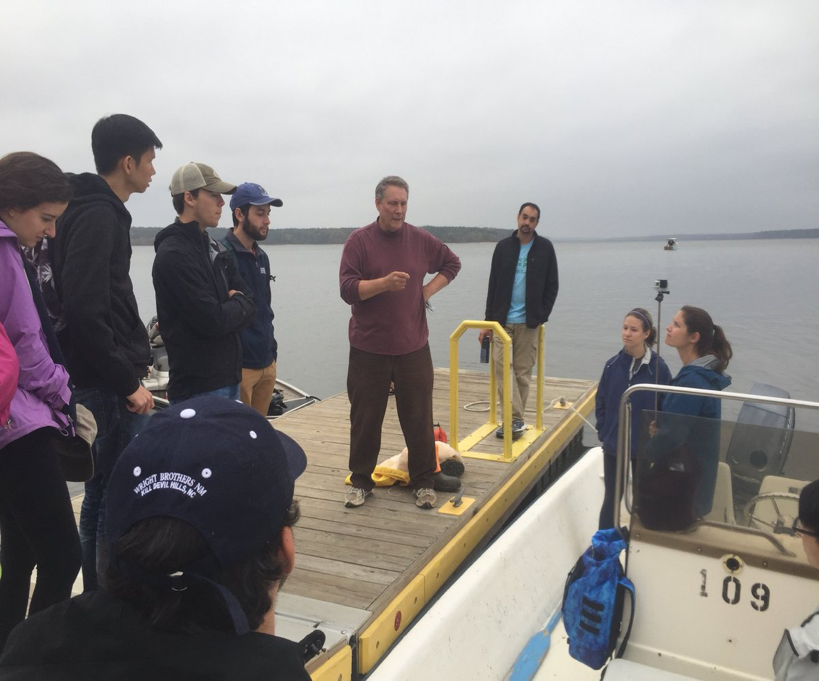By Mike Piehler
Mike Piehler is a professor at the UNC Institute of Marine Sciences and the Technical Lead for the UNC Nutrient Management Study.
The UNC Nutrient Management Study is conducting a comprehensive assessment of the condition of Jordan Lake that includes exploring cost effective solutions to improve and sustain water quality.
Located in Chatham County, south of Chapel Hill and Durham and west of Cary and Apex, Jordan Lake provides tremendous economic and environmental value to North Carolina. More than 300,000 residents rely on Jordan Lake for drinking water. In addition, the lake is a valuable recreational resource with more than a million visitors a year, provides fish and wildlife habitat, and controls floodwaters for downstream residents.
The U.S. Environmental Protection Agency designated Jordan Lake as impaired by nutrient pollution a decade and a half ago. Since that time state policy-makers, regulatory agencies, local governments, and a range of stakeholders have worked to find solutions to reduce the nutrient pollution which fuels algal growth, and thus improve water quality in Jordan Lake.
In 2016 the North Carolina General Assembly directed UNC to examine nutrient management strategies for Jordan Lake and Falls Lake (a similar reservoir located in Durham, Granville, and Wake counties) over a six-year period. The UNC Nutrient Management Study has focused its initial efforts on Jordan Lake and just completed its second Interim Update to the General Assembly. A final report on Jordan Lake is due to the legislature in December 2018.

This project has been a great opportunity to work with faculty at UNC and N.C. State to assess the challenges at Jordan Lake and identify cost effective solutions. Our study team includes more than two dozen faculty, staff, graduate and undergraduate students and is being managed by the N.C. Policy Collaboratory. Over the past year we have been working on a variety of research projects that will provide new data and findings to inform management of the lake.
Research foci of the team include:
- Identifying the nutrient and sediment sources within the watershed;
- Accounting for nutrient sources in Jordan Lake and their impact on algal growth;
- Analyzing the conditions that drive algal growth;
- Understanding perceptions about water quality in Jordan Lake and the watershed;
- Reviewing policy and management options; and
- Working to identify financial solutions.
Two critical features of the UNC Study are the interdisciplinarity (natural science, social science, and engineering) and the integration of the individual research projects within a conceptual framework. For example, scientists gathering water quality data from the lake are sharing that information with both policy experts who are evaluating the appropriate water quality standards, and with engineers who are assessing control measures to mitigate lake pollution. Our study is a great example of collaboration across the university system to tackle a complex problem with real environmental and economic imperatives for the state.

Over the next year, our team’s work will continue, and while there are no short cuts or quick fixes to addressing the protection of Jordan Lake, I am confident our work will provide actionable information and recommendations for state leaders to develop a comprehensive plan.
There will be a day-long public forum on March 22 at which we will provide updates on the research results. We will also be conducting briefings and public lectures throughout the watershed to ensure that elected officials, community leaders, and the public are well informed about our work and its connection to the future of Jordan Lake.
Please check the NC Policy Collaboratory website for more information.

